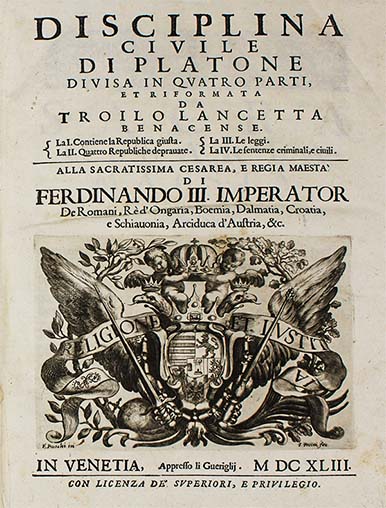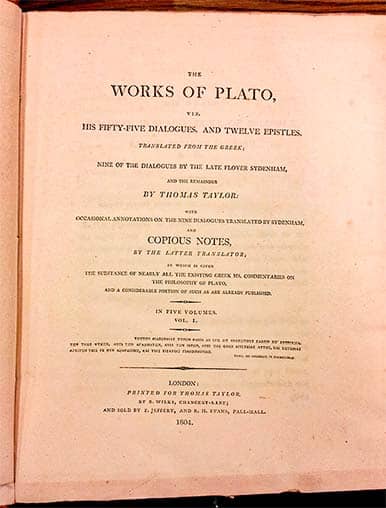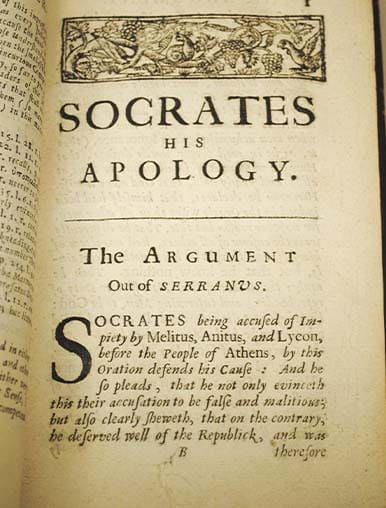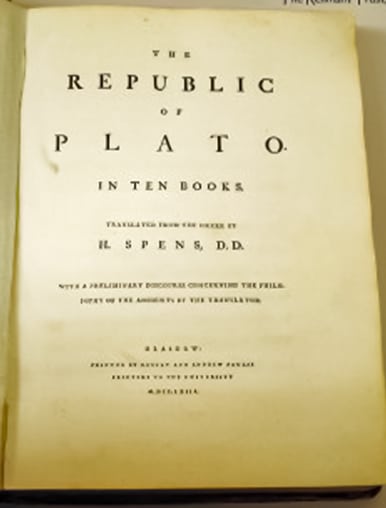REMNANT TRUST COLLECTION
The Republic and Laws by Plato

Category: Philosophy and Politics
By Plato
Published in 1643
Reference #1500
First Edition, with woodcut decorated head-pieces, tail-pieces and initials in text and engraved title page coat of arms of the Emperor Ferdinando III, dedicatee of the work, drawn by Francesco Ruschi and engraved by Giacomo Pecini. Contains “Republic” and “Laws.” Only a few other copies published around the same time frame are available. This 1643 edition, edited and organized by Troilo Lancetta in Italian vernacular, represented a wider engagement with Platonic and Aristotelian ethics in the late Renaissance and Scientific Revolution. Lancetta would publish a number of works in the 1640s regarding Hippocrates, Aristotle, and Medical Humanism.
Within the volume, Plato’s notorious “Republic” can be found, written in approximately 380 BCE in Greek; it is a Socratic dialogue discussing justice and the qualities of a just man. In addition, the work discusses city-states, particularly in relation to order and character. Three key topics are identified in “Republic”: the definition of justice, theory of universals, and five forms of government and their nature (aristocracy, timocracy, oligarchy, democracy, and tyranny). The dialogue ultimately argues and mounts a defense of a just life and its connection to happiness. Also included in this volume is “Laws,” written in twelve books. It is Plato’s longest dialogue and is believed to be his last composition.
The work is a conversation between three men who discuss what law is and combines political philosophy with applied legislation. The volume examines laws and procedures in detail to govern a state as well as laws in relation to philosophy, religion, politics and other topics. Of the two, “Republic” is the most famous. It is an extensive work that cultivates and defines the ideas of justice and what it means to be a just man; there is little wonder it has been proven to be one of the world’s most influential works in the genres of philosophy and political theory.





